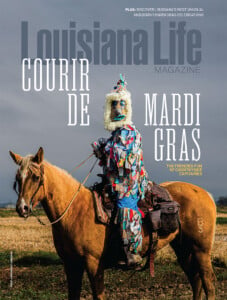What We Are Reading This Year
September – October

Misty Milioto
“Dungeon Crawler Carl” by Matt Dinniman. This story follows a man and his cat who must survive a deadly alien-run dungeon crawler game that has replaced Earth. While it’s a totally different genre for me, I love how the author balances genuine horror with dark comedy.

Cheré Dastugue Coen
“Murder Town” by Shelley Burr. I fell in love with this Australian author when I discovered her thriller “Wake.” Her new book follows up the series featuring private detective Lane Holland and a small village whose highway becomes infamous for the horrific murders by the Rainier Ripper.

Jeremy Marshall
“Angel Down” by Daniel Kraus. A story of unique grace and horror unfurled across one breathless, novel-length sentence, “Angel Down” follows the doomed mission of five American soldiers in World War I who are tasked with traversing the atrocities of No Man’s Land in search of what they believe to be a dying comrade, but is, in actuality, a fallen angel.
July – August

Kevin Rabalais
“Tomorrow, and Tomorrow, and Tomorrow” by Gabrielle Zevin. It’s a page-turning pleasure about friendship and the creative process. I’ve never had so many people come up to me while I’m reading to say how much they, too, enjoyed a book.

Melanie Warner Spencer
“Great Big Beautiful Life” by Emily Henry. I am all in, and it doesn’t hurt that the main character and the love interest are both journalists.

Liz Williams
Hugh Acheson’s “The Broad Fork.” It is a cookbook full of ways to approach the ordinary vegetables I already eat, as well as a guide to vegetables, which I should be eating but am not.
May – June

David Joshua Jennings
“Vagrant Viking: My Life and Adventures” by early 20th century Danish explorer Peter Freuchen. This book is a fascinating account of Freuchen’s early life in Greenland -— where he immersed himself in Inuit culture, established trading posts and survived countless life-threatening challenges.

Jeffery Roedel
“Garden City: Work, Rest, and the Art of Being Human” by John Mark Comer. Whether you are a spiritual believer or a skeptic, Comer’s countercultural take on the concept of working is a thought-provoking read, encouraging intentionality and purpose for all the avenues we direct our energy.

Lisa LeBlanc-Berry
“A Bite-Sized History of France” by Stéphane Hénaut and Jeni Mitchell with M.F.K. Fisher’s “The Gastronomical Me”
One dives into the politics behind cheese and champagne; the other stirs up memories of Paris, learning from loquacious neighborhood butchers and fromageries along Rue Mouffetard. Both remind me that food is never just food — it’s story, identity and revolution on a plate.
March – April

Liz Williams
“Unpalatable: Stories of Pain and Pleasure in Southern Cookbooks” by Carrie Helms Tippen. This book makes me understand why people simply read cookbooks, gleaning historical messages without necessarily cooking from the books.

Eugenia Uhl
“The Safekeep” by Yael van der Wouden.
The story is set in the Netherlands, about a confiscated home after the war and a relationship that develops when one woman tries to get her home back.

Jeremy Marshal
“Pay The Piper” by George A. Romero & Daniel Kraus.
A Lovecraftian horror set among the water-logged shanties of a humble Cajun bayou community about returning dominion of the swamp land to the depths and the dead.
January – February

Kevin Rabalais
After this book, Joan Didion became a literary institution while still in her 30s. Her contemporary, Eve Babitz, was the center of ’60s and ’70s L.A. cultural spheres.. Lili Anolik’s “Didion & Babitz” chronicles the pair’s friendship.

Melanie Warner Spencer
This is a beautifully rendered, alternate-history fantasy novel set in 1893, exploring prejudice, powerlessness, sisterhood, motherhood and revolution through the three young and estranged Eastwood sisters in New Salem.

Cheré Dastugue Coen
I’ve followed Penny’s Chief Inspector Armand Ganache series for years, enchanted by her quaint village of Three Pines of Quebec, a town absent from maps and full of fascinating characters.
